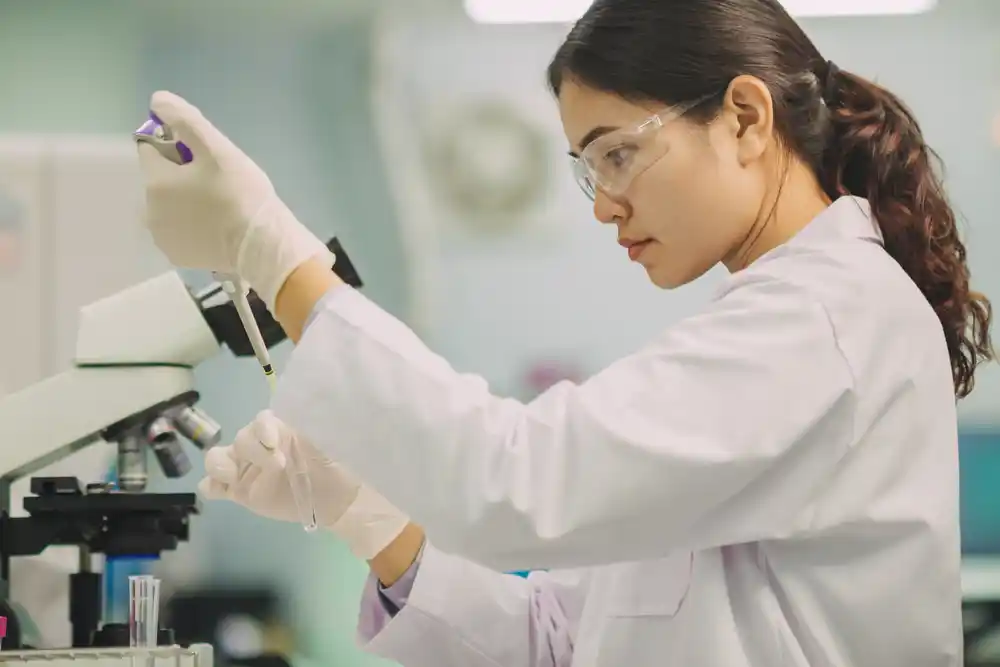
What would it be like if travelling were part of your job? Are you conducting your research, collecting blood samples, or working in different labs while travelling from one city to another? Sounds cool. That’s precisely what travel phlebotomists do. But before you grab your butterfly needles and hit the road, there are a few real things to consider. While the mobile phlebotomist life is flexible and exciting, it’s also demanding and dynamic, not for the faint of heart (or blood). This guide will walk you through everything you need to know before starting your career as a travel phlebotomist, including training, lifestyle expectations, and insider tips on making it a successful—and sustainable—career.
What Exactly Is a Travel Phlebotomist?
A phlebotomist is a healthcare professional trained to draw blood from patients for medical testing, transfusions, research, or donations.
Now, enter the travel phlebotomist or a mobile phlebotomist who performs those tasks in varied and changing locations. Instead of working at a single hospital or clinic, you might travel to:
- Nursing homes
- Private homes (for homebound patients)
- Blood donation drives
- Health screenings at schools, workplaces, or community events
- Rural or underserved areas without easy access to labs
Where Can Travel Phlebotomists Work?
COVID-19 has changed the scenario as the demand for Mobile phlebotomy is rising, as patients increasingly seek in-home or remote care services. Employment opportunities exist in:
- Private diagnostic labs
- Home health agencies
- Clinical research organizations
- Public health departments
- Blood banks like the Red Cross
- Mobile testing services (especially for life insurance companies)
What Training Do You Need to Become a Travel Phlebotomist?
Unlike doctors or nurses, they do not have to go through rigorous studies; they are required to complete the programs in 8 weeks to 1 year, and they typically include:
- Classroom instruction on anatomy, safety, and specimen handling
- Hands-on training with live blood draws
- A certification exam (depending on your state)
Of course, you need to be certified by the governing/ accredited body like -
- ASCP (American Society for Clinical Pathology)
- NHA (National Healthcareer Association)
- NCCT (National Center for Competency Testing)
Salaries for the travel phlebotomist
Salaries depend mainly on your experience and the location where you will be placed. The package varies from agency to agency; some add bonuses, housing stipends, and more. You can expect the salary to range from (XYZ to ZYX).
Key factors that you need to consider
Is Travel Phlebotomist the right job for me?
Now that you have understood the requirements and key considerations ensure you are ready for this job. If you are detail-oriented, confident working solo, good with people, craving a non-traditional healthcare role, and looking for a career that blends freedom with impact, then YES! Yes, this job is not for everyone; days might get tougher, and you might not have every day as the same day, but if you are dynamic and adapt quickly to the changing environment, you are fit for the job.
Final Thought
If you want to be a healthcare professional but prefer working alone, travelling, collecting samples, or working in remote areas, becoming a Travel Phlebotomist could be perfect for you. This role can be demanding—you may head out early or face challenging weather—but if you’re self-sufficient and calm, you can thrive. You must stay organized, pack your supplies properly, hold valid certification and a driver’s license, and complete the required training. This job is independent—there’s no team to rely on. EmpowerCare can help you start your career by connecting you with training and your first placement. If you’re already an experienced travel phlebotomist, EmpowerCare’s portal offers a wide range of jobs to match your needs, preferred locations, and salary expectations. Take control of your career journey and find the best opportunities in this rewarding field.
